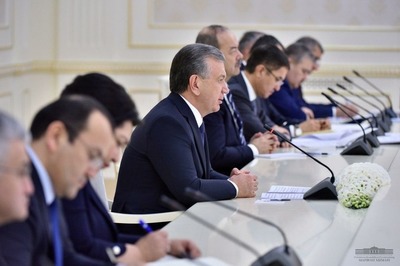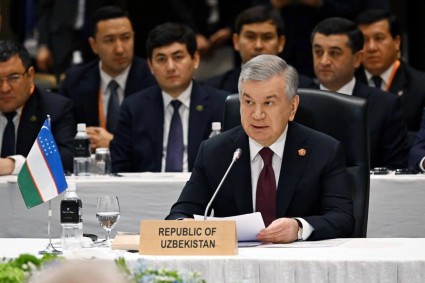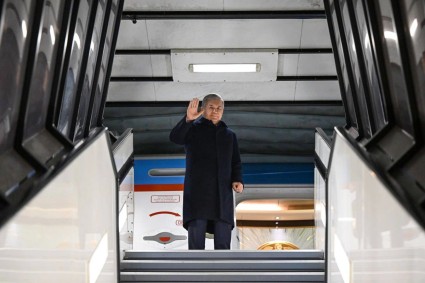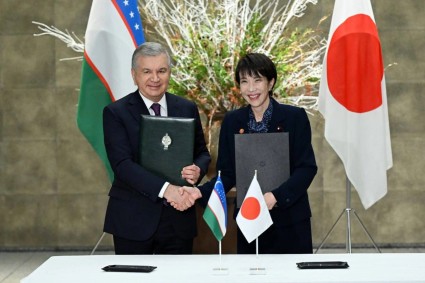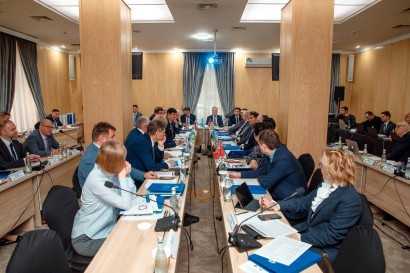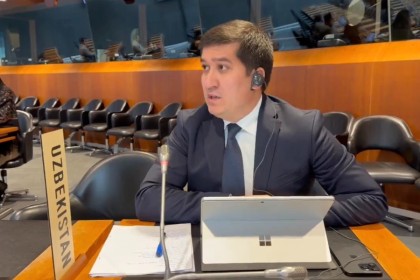President Shavkat Mirziyoyev chaired a government meeting to discuss projects in the water sector on Tuesday. He pointed to the four main problems in the field of water management are analyzed - water losses in canals, high energy consumption of pumping stations, limited water reserves and insufficient implementation of water-saving technologies.
According to the Uzbekistan 24 channel, 10.7 thousand cubic meters of water is used for irrigation of 1 hectare of sown land, while in developed countries this figure is 6,000-7,000 cubic meters.
Due to the low efficiency of canals and large losses of water in internal networks, agriculture loses $4.8 billion a year, the presidential press service reported.
In this regard, it is planned, as an experiment, to introduce a pipeline irrigation system in the Pakhtakor district of the Jizzakh province. The head of state instructed the CEO of Agrobank, Rustam Mamatkulov, to raise 10 billion soums for "scientific support of the project."
He, having listened to the proposals of the initiator of this project, supported the initiative and pointed to the need for similar work in Kashkadarya, Namangan, Syrdarya provinces, where the cost of water supply is the highest.
He instructed to take measures to reduce costs within the project, using a scientific approach, to develop a two-year program for the introduction of a "closed" pipeline irrigation system.
Water is delivered to remote fields by means of pumping stations. Most of them are outdated and consume a lot of energy. Not a single large pumping station has yet been transferred to alternative energy sources, although it annually receives subsidies of 5.7 trillion soums (almost $500 million) for their electricity supply, the meeting said.
Many businesses are interested in this, but their promising projects are not being implemented, as there are no clear conditions. As a result, a lot of money from the budget is spent on powering the pumps.
Shavkat Mirziyoyev gave instructions to the Minister of Water Resources Shavkat Khamraev, together with the governors of the provinces, to transfer 300 pumping stations to the management of entrepreneurs on a private partnership basis and introduce alternative energy sources. Scientists from the Tashkent Irrigation Institute will be involved in this, effective projects will receive loans from Agrobank on favorable terms.
The president noted that every year 1 billion cubic meters of mudflows "leak in vain."
“If we learn how to accumulate mudflows in small reservoirs, then it will be possible to irrigate an additional 100,000 hectares of land and improve water supply by 500,000 hectares. Entrepreneurs have put forward initiatives to create a reserve of 150 million cubic meters of water in 18 provinces where there is potential for water accumulation,” he said.
It is planned to raise $100 million for these projects. Land put into circulation as a result of irrigation with accumulated water will be provided to entrepreneurs who have created reservoirs for free use for a long time.
Today laser technologies have leveled 450 thousand hectares or 15% of irrigated areas. If these areas are doubled, another 900 million cubic meters of water will be saved, and water supply will be improved on an additional 200,000 hectares.
In this regard, it is planned to deliver 1000 laser levels (an optical device for marking the ground) in 2023 so that the clusters can establish laser leveling services for farmers.
In recent years, drip and sprinkler irrigation technologies have been introduced on 400 thousand hectares. This year, work has begun on another 80,000 hectares.
To stimulate the introduction of these technologies, in accordance with a resolution signed on April 1, the amount of subsidies for each hectare of grain and vegetable fields where a water-saving system has been introduced has been increased from 1 million soums to 8 million soums. The bank loan rate for farmers was set at 17%.
The importance of bringing these opportunities to farmers and providing them with financial support was noted. The task was set to create a separate center for the formation of new water-saving projects at Agrobank and to attract qualified specialists from abroad.

